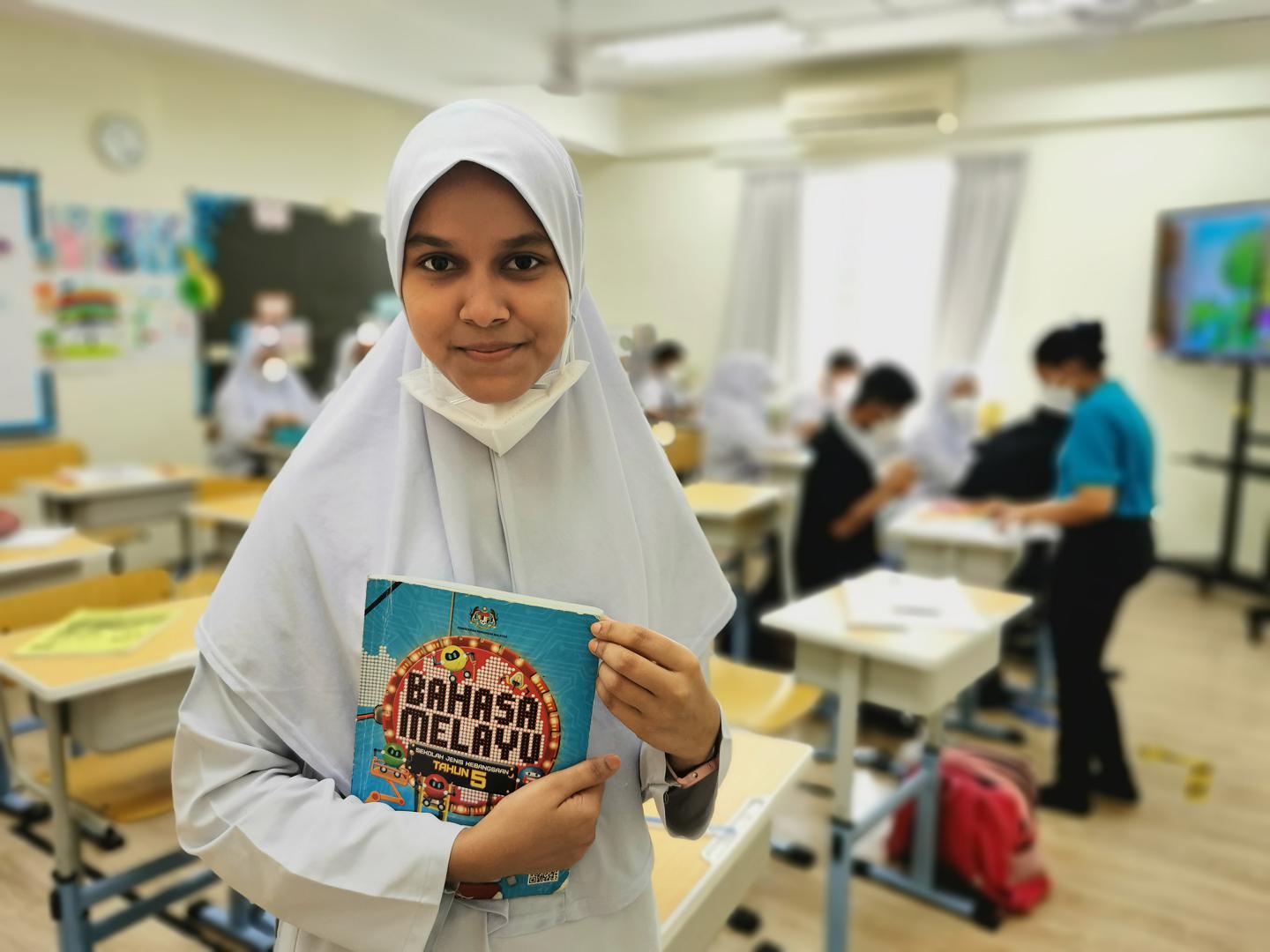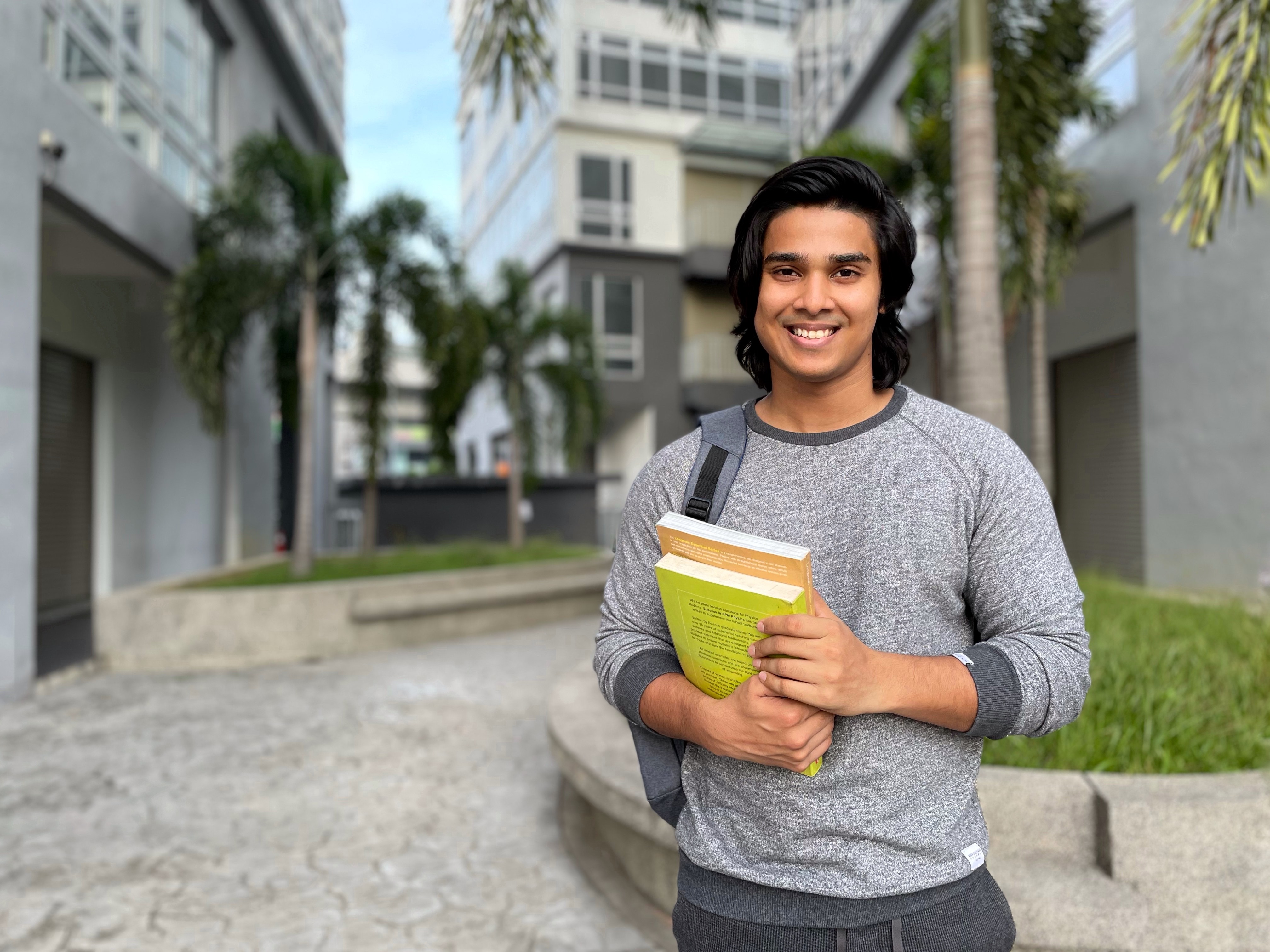'We became family': A friendship forged between diverse women

'We became family': A friendship forged between diverse women
Most friendships begin with open arms, but for unlikely best friends, Syaedah – a Rohingya refugee woman living in Malaysia - and Nasha – a Malaysian citizen - it might have started with an ‘I love you’ instead.
“In the beginning, I would say "I love you" at the end of the phone calls with Syaedah, but maybe this was too culturally different, because she would only reply with "oh ok" before hanging up," laughed Nasha.
But these awkward early exchanges of affection foreshadowed a true friendship that would profoundly and forever impact the lives of both women.
The duo first met at the Rohingya Women Development Network (RWDN), a social enterprise aimed at empowering Rohingya women in Malaysia. Nasha is RWDN’s co-director, while Syaedah joined the centre over four years ago.
Syaedah, who had never been to a school before, learnt to read and write for the first time at the centre.
“I used to volunteer at RWDN every Monday to teach the refugees skills that could earn them a living. That was when I first met Syaedah,” recalled 34-year-old Nasha. “Syaedah was a student of mine. She came for the classes with her sister.”
Syaedah recalled being terrified of engaging anyone outside her community at the start, and that included Nasha.
“When I first came to RWDN in 2017, I was scared to talk to any Malaysian. I wasn’t sure how they would treat us,” said the 25-year-old Syaedah. “But from the start, Nasha was different. She respected us.”

Syaedah comes from a conservative culture, where women are often not given opportunities for education or work. Her family fled persecution in Myanmar when she was only four years old. She grew up in Malaysia, but did not get a chance to attend any of the learning centers available for refugee children in the country. Instead, out of necessity, she was married at the age of 15, and became a mother in the same year. Syaedah now has two daughters, aged nine and one.
When the opportunity arose to learn new skills at the RWDN centre, Syaedah did not hesitate to join.
“I feel like I lost my childhood because I got married young and could not attend school and college,” she said. “But I still consider myself lucky to have a husband who is understanding and who supports my dreams to learn and be an active member in the community now.”
As Syaedah learnt new crafts skills from Nasha, their friendship developed too.
“I needed someone I could depend on in the group, and Syaedah stepped up,” said Nasha. “Just like that, Syaedah became my number one, my right arm and best friend. We got closer and closer as we worked together.”
Today Syaedah helps Nasha run RWDN as a community leader. Together, they educate young Rohingya girls and women on child marriage and domestic violence at the centre.
As they uplift the women around them, Syaedah and Nasha also find support in each other. Just like any deep friendship, the women see each other through the good times, and through the difficult times.
“When my grandmother passed away, Syaedah and her sister came to be with me. They brought me food and stayed the whole day. I was so touched,” said Nasha.
“Syaedah is one of my best friends,” said Nasha. “She is a genuine person, and one of the kindest people I know. She notices even the smallest things that I don’t realise about myself, like when I am tired and need rest.”
“Over time, I started opening up more and more to her. Today Syaedah is my family,” said Nasha. “I visit with her whole family. I come for her daughters’ birthdays and other family events.”
“Syaedah has been there for me in my personal life too. We are there for each other,” said Nasha.
Syaedah looks up to Nasha as a sister and role model.
“Sometimes she is like a sister, other times she is like a mother, scolding me even,” joked Syaedah. “We have become family.”
Since the pandemic began, Syaedah and Nasha developed a nightly routine of checking in on each other.
“We send heart emojis to one another to check in and make sure we are ‘alive’,” said Nasha. “Even when work gets busy, we try to send voice messages to each other every night.”
The best friends embody how friendships can blossom between unlikely people and in unlikely circumstances, when people open their hearts to seeing beyond what divides them.
Syaedah said, “People might hesitate to befriend us because we are refugees. But we are just like everyone else. We have families and friends. We have laughter and tears.”
“The beautiful thing about friendship is that it can break down all kinds of barriers. All it takes is a hello,” said Nasha.










